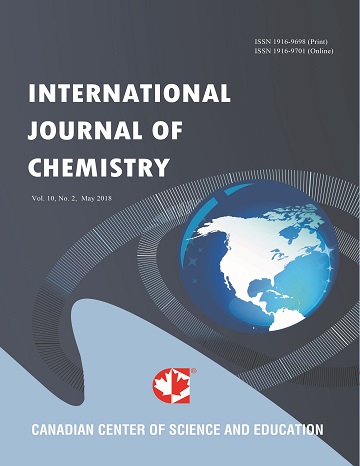Progressive Acidification: An Aspect of Chemical Leaching of Sewage Sludge
- Luke N. Ukiwe
- Rita N. Oze
- Christopher I. A. Nwoko
Abstract
The effect of progressive acidification using inorganic and organic acids in chemical leaching of sewage sludge was studied. Results of analyses using Atomic Absorption Spectrophotometer (AAS) showed that Mn was the most metal solubilized totaling 4.760 and 4.220 mg/l using 30 % (v/v) HNO3 and 50 % (v/v) acetic acids respectively for digestion, while Cd (0.038 and 0.027 mg/l) was the least metal extracted using 10 % (v/v) H2SO4 and 50 % (v/v) benzoic acid respectively for digestion. HCl was generally observed to be the best extraction medium for the metals; Cd, Mn, Pb, Ni, and Cu at all acid range 10-90 % (v/v) concentrations. However, comparing the leaching capability of both acids type, the inorganic acids were observed to be more effective than organic acids in leaching heavy metals from sewage sludge.
- Full Text:
 PDF
PDF
- DOI:10.5539/ijc.v4n1p62
Index
Contact
- Albert JohnEditorial Assistant
- ijc@ccsenet.org
